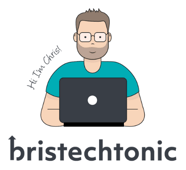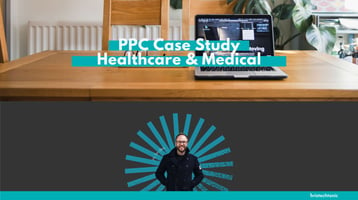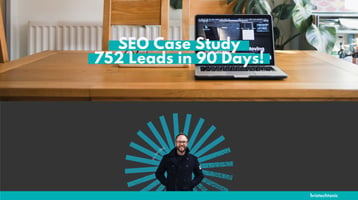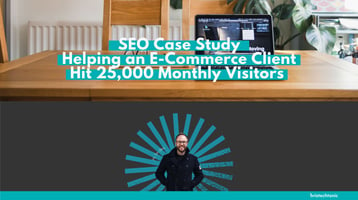In this case study, you’ll learn how we were able to reduce cost per lead by 60%+ in a highly...
Reduced Cost Per Lead By 85%!
In this PPC case study we will show you how we took an existing campaign, dropped the lead cost by over 85%, saved them thousands in ad spend, and 6x’d the monthly lead count.
Want to see how we did it?
In this article, I’m going to break down the strategies that helped us turn this campaign around... AND show you how to apply these strategies to your Google Ads PPC Campaigns!
Let’s dive in!
Background
This client sells high-end specialty home goods that have prices starting at ~£5k+, so this is a lucrative market.
The website is set up as sort of an e-commerce store, with all types of products listed. Because this is such a high-end market, most people don’t just buy online, they always speak with someone to match them up with the perfect product.
They came to us for some help in reducing their lead cost, as well as delivering them a higher volume of leads while maintaining lead quality.
The Audit - Huge Opportunities Uncovered
Google Ads is sort of a land mine.
It is by far the most powerful ad platform in the world, but also has grown to be one of the most complex.
Make no mistakes about it - Google’s #1 goal is to get as much money from you as possible, seemingly without any incentive for you getting ROI.
...But that’s where we come in.
The first thing we always do is an audit of the account.
We’re looking for:
- Current data to gain insights from (what’s working, what’s not).
- Mistakes in the account or setup that lead to poor conversions.
100% of the time, no exaggeration, we find opportunities that can be improved.
To set the baseline, here’s what the account looked like when it was handed to us, before any work was done:
Cost: $2,020
Conversion Rate: 0.34%
Conversions: 5
Cost Per Conversion: $403
Right off the bat, we notice that the conversion rate is only .34% which is pretty low, and the cost per conversion is high for what’s expected.
Here are a few things we did right away to get this campaign restarted:
Know Exactly Where Every Cent Is Going With Proper Tracking
Tracking and data is the backbone of a properly setup campaign.
Without it, you can’t find out what campaigns are actually working, so you’ll never be able to make decisions about what to keep, cut, or scale!
The problem is that unless you’re an expert, it’s easy to set this up incorrectly (or not set it up at all!)
In this account, we found conversions like “All Page Views” and other settings like “Count Every Conversion” were setup and were leading to a lot of false data over the years.
For instance with the “Count Every Conversion” setting, if you click an ad once and opt in 3 times, it is counted all 3 leads when in reality we only have one lead. This is OK for purchase conversion campaigns, but not great for lead gen.
You see? There are landmines like this all over the place.
How we fix it:
We setup all new triggers and tags inside of Google Tag Manager which then sent the data back to Google Analytics and Google Ads.
We use Google Tag Manager in every account we touch so that all data is going to one place and then being properly sorted.
It is very easy to trace if there are any problems, and we only have to put one tracking code, Google Tag Manager, onto our pages.
Increasing CTR With Streamlined Ad Groups & Ad Copy
In Google ads, you have “ad groups” which include a set of keywords that your bidding on, and the ad copy that will be displayed when people use those keywords in their searches.
When users search for a certain keyword, they’re looking for something very specific and want the solution.
But when a generic ad pops up, it won’t necessarily match exactly what they are looking for, and that can increase your costs since your CTR (click through rate) is too low.
In this account, we found that a lot of the ad groups were using the same generic ad.
This is a big opportunity because 1 ad can’t show the differences in each product, highlight benefits, or characteristics of the specific product.
How we fixed it:
We created all new ads with headlines & descriptions that included the specific seed keyword in each one.
This is one of the most important steps to a high converting campaign because of how valuable the user experience is.
You don’t want someone searching for “oil changes near me" and an ad for “tire rotations” coming up.
It is completely irrelevant and won’t generate a lot of traffic.
Making this change not only increased the ad relevance score but also made the user experience seamless for what they’re searching for.
From these major optimisation steps and our daily management, these are the results we saw by the end of June, 2019.
Cost: $1,690
Conversion Rate: 0.42%
Conversions: 7
Cost Per Conversion: $241
Just with these few strategies, you can see that the cost per conversion dropped over 40% since the beginning.
But we’re not done yet.
Increasing Conversions With Landing Pages
Running profitable campaigns takes a multi-faceted approach. It’s often not just what is set up in the account, but also what happens after the ad click.
A common problem that we see is that people often are driving traffic to their website, but that website isn’t as optimised as it can be for the conversion they want.
When you have a lead gen campaign going to your normal website, it’s often crowded by all sorts of distractions like navigation menus, content, and it’s not clear what you want them to do.
You see, when a visitor lands on a page, you have to make it extremely clear what you want them to do, and eliminate all other distractions.
That’s where landing pages come in.
A landing page is a page designed specifically to get conversions after an ad is clicked...
...and it can make an enormous difference in how a campaign performs!
A landing page has one primary CTA (Call To Action), the page copy is written around the customer avatar and exactly the keywords you’re bidding on, and there are no links to other destinations.
In this case, this account was sending traffic directly to their website, but there was a ton of room for conversion rate optimisation.
We want people to take action now and that is what a landing page will do.
How We Fixed It
To kick this campaign up a few more notches we needed a dedicated landing page.
Over the last few years, we have ran millions of dollars in ad spend and one thing is for sure - most people are BURNING money by not using high-converting landing pages.
So we started with one of our signature landing pages that encourage traffic to opt-in to view their current inventory and pricing.
We included a simple but to the point headline, a carefully crafted benefits section, and a clear Call-To-Action, all in a well designed, beautiful landing page.
The results?
Cost: $1,820
Conversion Rate: 1.19%
Conversions: 32
Cost Per Conversion: $56.90
Conclusion
By setting up proper tracking, optimizing the campaign with our specific process, and implementing a focused landing page, we were able to drop their CPL (Cost Per Lead) by over 85%!
If we generated the same amount of leads we did in July for the same price as April we would have spent $12,896, vs the $1,820 that we spent.
Cost: $2,020
Conversion Rate: 0.34%
Conversions: 5
Cost Per Conversion: $403Cost: $1,690
Conversion Rate: 0.42%
Conversions: 7
Cost Per Conversion: $241Cost: $1,820
Conversion Rate: 1.19%
Conversions: 32
Cost Per Conversion: $56.90
|
April 2019 (Pre-PPC) |
June 2019 (During PPC) |
July 2019 (During PPC) |
|
Work Done: None (Pre-PPC) |
Work Done: Basic Restructure Campaign Optimization |
Work Done: Advanced Optimization Custom Landing Pages |
The great thing is we’re still not done.
Because we do daily management and ongoing optimization, we have a wealth of strategies to implement to take this campaign even farther as we get more data.
Additionally, as long as the client can handle the volume, we can work to scale it to the moon - all while maintaining a healthy CPL and lead quality.
Looking for a new kind of Bristol PPC Agency? Simply book a call with us to discuss your business.




